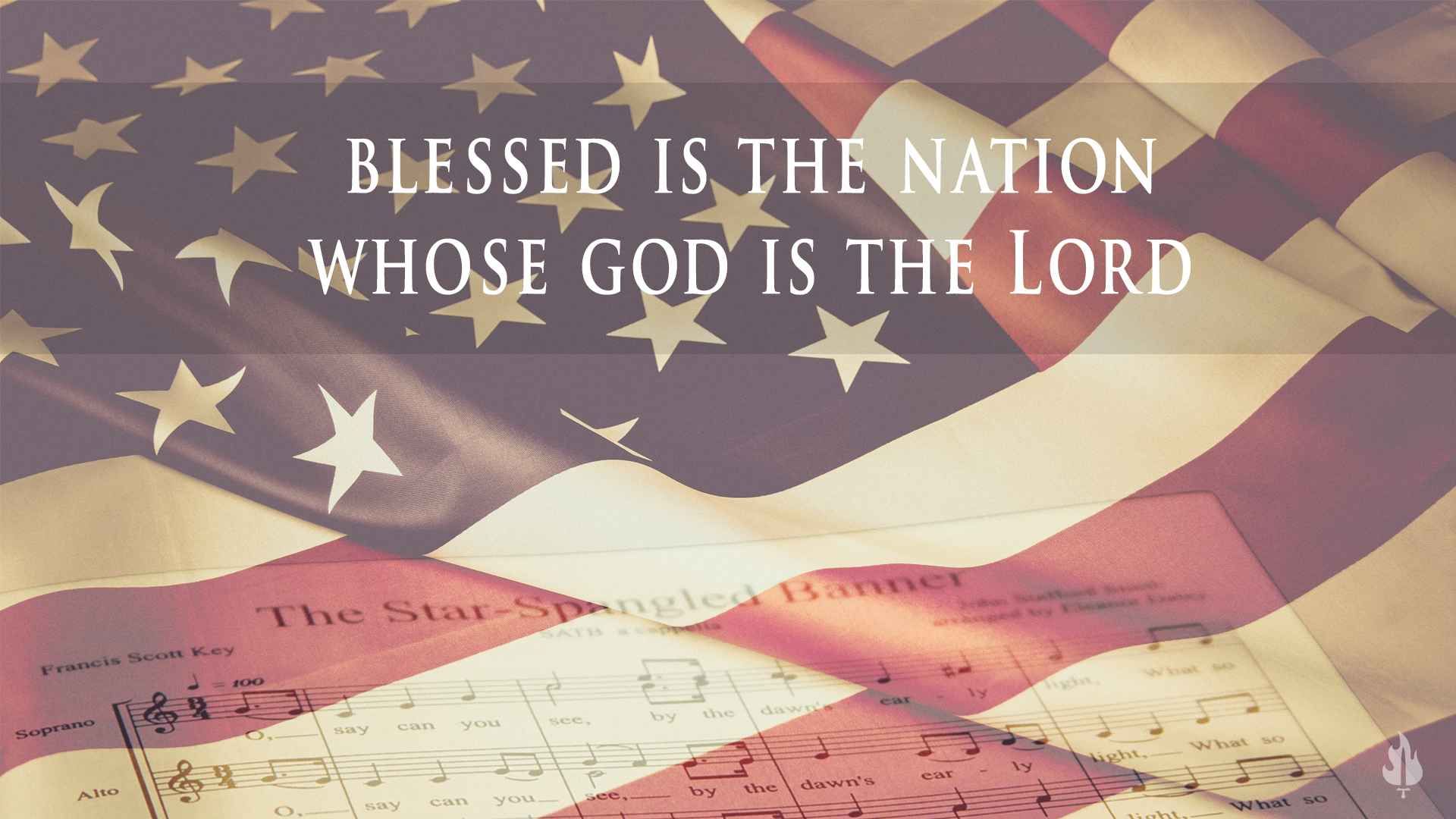"It’s no good to sit up and take notice if we just keep on sitting."


"It’s no good to sit up and take notice if we just keep on sitting."

Reflect on the theme of this beloved Hymn written by Charles Frederick Weigle. He was not without his hours of trouble and heartache. Yet it seems that out of these grievous sorrows flowed forth one of the most beautiful and widely known of his songs, “No One Ever Cared for Me Like Jesus.”
The song would be a summation of his whole life’s experience with his wonderful Lord.
How often have you wondered, Does anyone really care?
Well, there is One who loves you and cares for you more than you care for yourself. Turn every problem over to Him…right now.
“Casting all your care upon him; for he careth for you.”—I Peter 5:7.

Washington Is Burning
The Star-Spangled Banner
“Blessed is the nation whose God is the LORD; and the people whom he hath chosen for his own inheritance.”— Psalm 33:12
It was September 13, 1814, and the citizens of Washington, D.C., watched in horror as their city burned. The White House, the Capitol, and most of the other government buildings were ablaze. England and the United States were engaged in the War of 1812
.
As the British retreated to the ships anchored in the Chesapeake Bay, near the mouth of the Potomac River, they took William Beanes as a captive. He was a prominent physician and friend of Francis Scott Key, a lawyer and plantation owner.
Key then secured permission from the government to negotiate for the release of Beanes. Although Key was successful, he and Beanes were detained overnight on the British ship Minden. Their enemies feared they had learned of the intention to attack Fort McHenry near Baltimore.
Key and his party watched as darkness fell and obscured Fort McHenry and the fifty-foot American flag that was flying overhead. They watched until the last gleaming of the twilight.
A raging battle began. Cannon fire, rockets, and flames allowed glimpses of the flag all through the night. As the day dawned, “Old Glory” could be seen still waving. They rejoiced that the fort had stood.
So thrilled was Key that he grabbed an envelope from his pocket and began to write what his heart was feeling. He finished the poem the next day in a Balti more hotel room, adding several more verses. The original copy is in the Maryland Historical Society’s H. Furlong Baldwin Library.
The poem, sung to an English tune known in the United States as “Adams and Liberty” and written by John Stafford Smith, became so popular in our country that in 1931 Congress made “The Star-Spangled Banner” our national anthem. The flag that flew over Fort McHenry is now on display in the Smithsonian National Museum of American History in Washington, D.C.
Francis Scott Key, a devout Christian, believed deeply in liberty and freedom. It is reported that the slaves he inherited from his wealthy father were freed by him in 1817. Before their release, he helped them with family problems, defended them, at no cost, in the courts, and started Sunday school classes for them. He did everything in his power to lighten their burdens.
He died January 11, 1843. Two statues of Key stand in our nation: one over his grave and another in Golden Gate Park, San Francisco, California. A flag, by order of the government, flies continuously over his burial place in Frederick, Maryland.
Many soldiers in Fort McHenry gave their lifeblood on that fateful night that you and I might be free. Today, multiplied thousands of American men and women lie in Flanders Field and in countless other burial places where crosses mark their graves, row on row.
They too gave their lives for our freedom—freedom to live and work and play without the fear of tyranny. What a wonderful blessing—this freedom we enjoy!
As the British retreated to the ships anchored in the Chesapeake Bay, near the mouth of the Potomac River, they took William Beanes as a captive. He was a prominent physician and friend of Francis Scott Key, a lawyer and plantation owner. defended them, at no cost, in the courts, and started Sunday school classes for them. He did everything in his power to lighten their burdens.
Reflection: Who is the Author of liberty, the Founder of freedom? You and I can never be really free—free from the guilt of our sins—apart from the freedom that Christ alone paid for with His blood on Calvary’s cross. Oh, to be free from guilt, to know that our wrongs have been made right, to know that we are free in our nation and in our souls before Almighty God.
